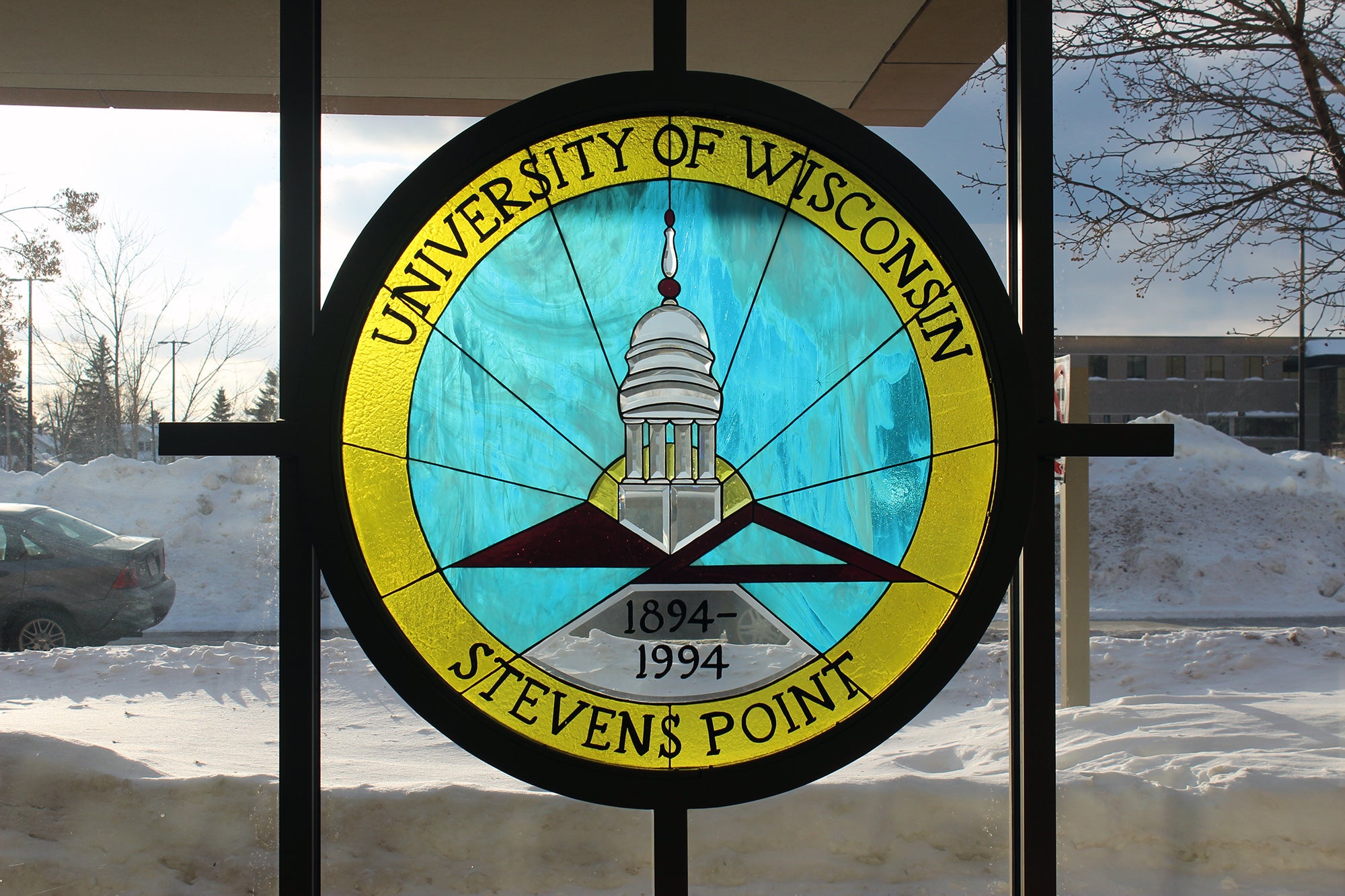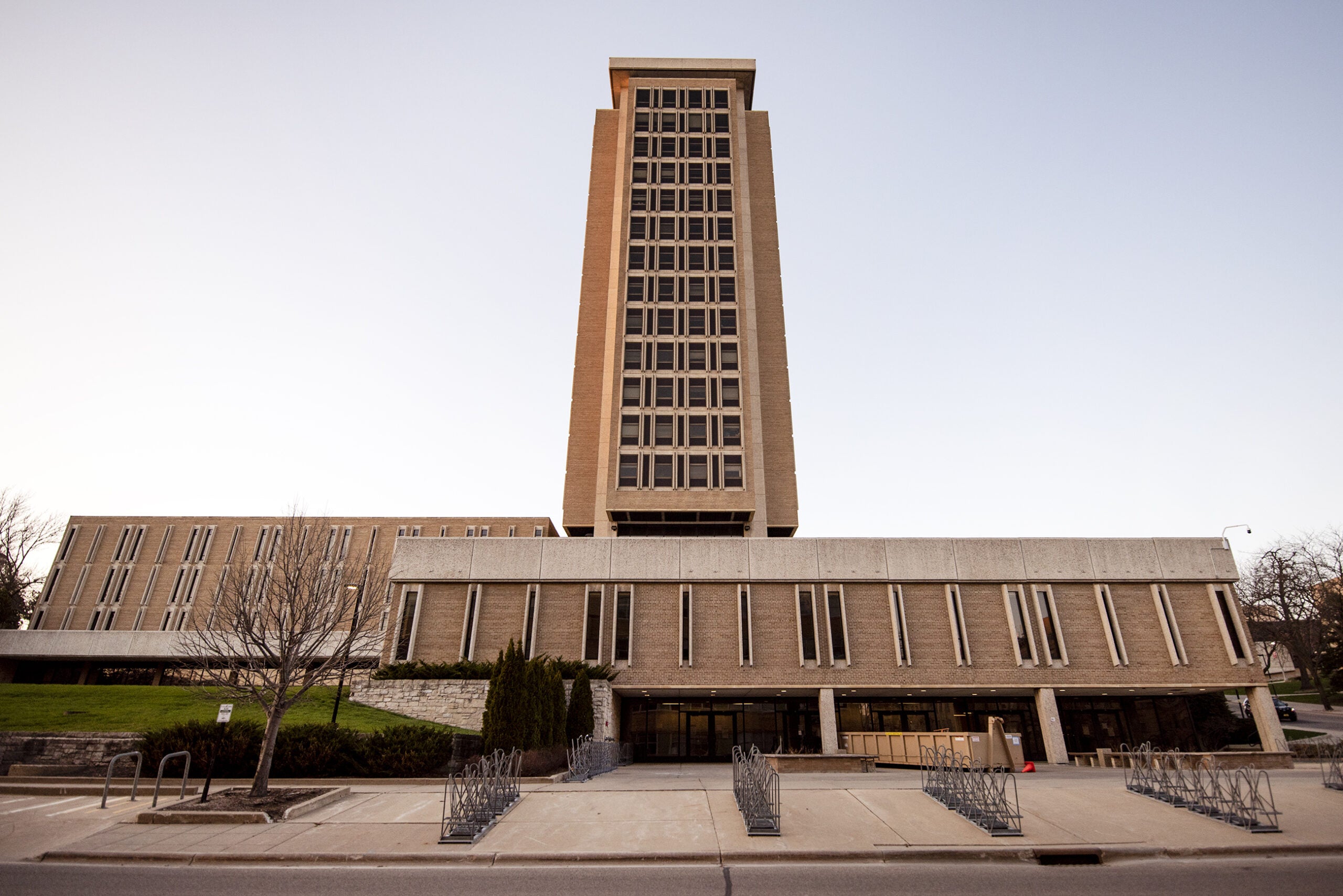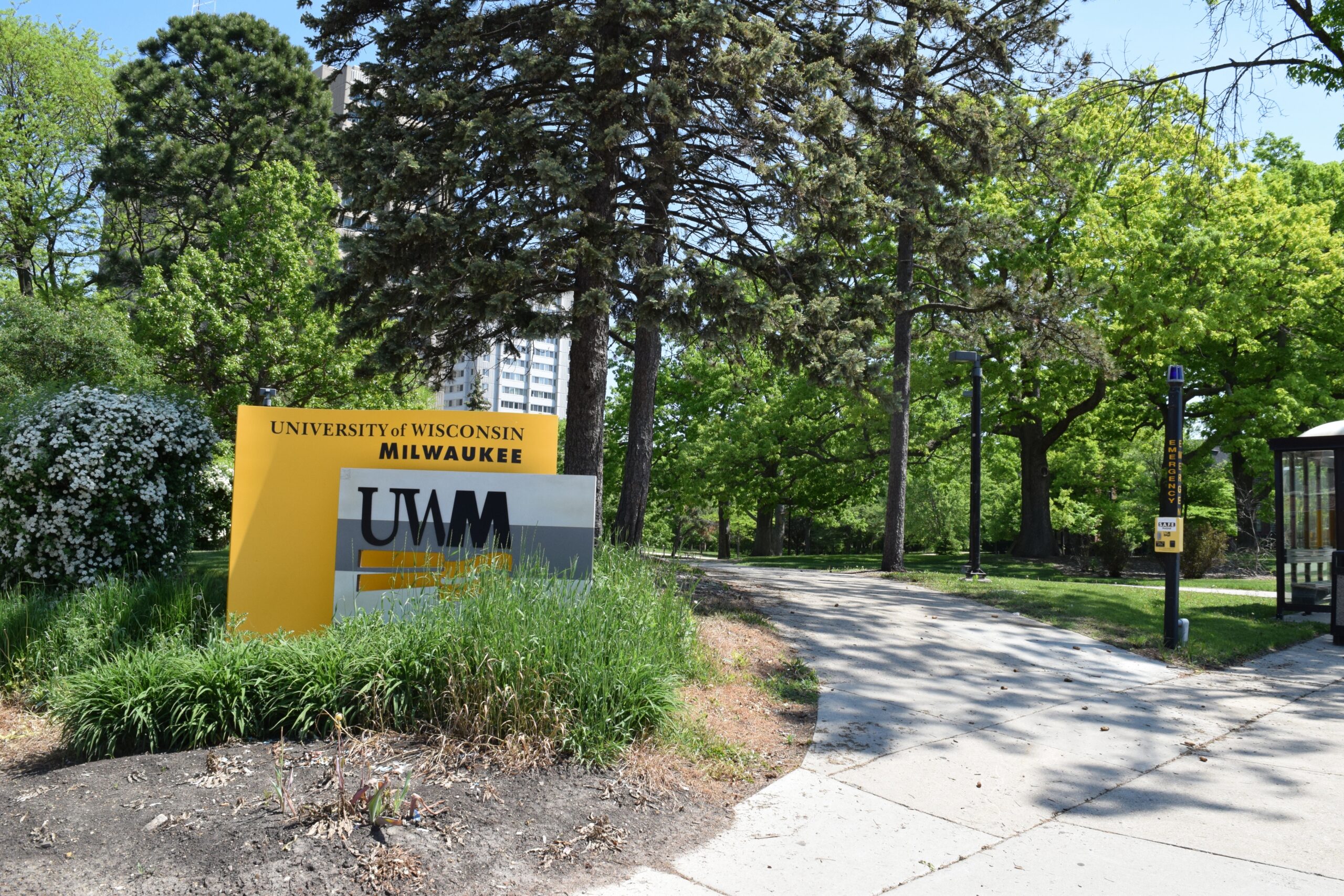When administration at the University of Wisconsin-Stevens Point announced a plan to cut more than a dozen majors last year, hundreds of students protested. In November 2018, the chancellor announced a revised plan, but six majors are still being considered for elimination.
Now, UW-Stevens Point is grappling with budget shortfalls, changing demographics and how regional public universities will adapt to a new reality.
Freshman Litzy Baltierrez is studying social work, which isn’t one of the majors being considered for elimination. But still, she’s worried.
News with a little more humanity
WPR’s “Wisconsin Today” newsletter keeps you connected to the state you love without feeling overwhelmed. No paywall. No agenda. No corporate filter.
“Honestly, I’m like very afraid because if they start removing a lot of majors, I don’t know if my major will be in that elimination process,” she said. “And if it is, then it’s time for me to look to go back home or go to a different school, which I’m starting to look into just in case.”

Litzy Baltierrez, a freshman at UW-Stevens Point, is concerned the university might not be able to meet students’ needs if it cuts too many majors. Bridgit Bowden/WPR
She’s concerned the university might not be able to meet students’ needs if it cuts too many majors.
“I understand we’re in a financial struggle, but many students do come here just because it’s a cheaper college, a small campus and there are still programs that are being offered,” she said.
But university administrators say UW-Stevens Point can’t continue to be all things to all people. The university is facing a dwindling budget and it’s only expected to get worse in the coming years.
The chancellor’s plan said UW-Stevens Point must become a “new kind of regional university” and includes potentially eliminating lower-enrollment majors in French, German, geography, geoscience, 2D and 3D art and history.
Critics say it devalues the liberal arts. But Chancellor Bernie Patterson insists they’re not going away.
“We’re going to continue all of the disciplines in the liberal arts, none of that is going away,” he said. “Whether we have a major in each one of them is yet to be determined.”
Patterson intends to collaborate with faculty and students to decide on the final plan. It could involve elimination or combination of majors, such as combining various art degrees into a proposed new school of design.
It would involve creating two centers in the university that, according to Patterson, would help infuse all majors with the liberal arts and do community outreach around the humanities. The Institute for the Wisconsin Idea would be responsible for creating a core liberal arts curriculum for career-focused majors. The Center for Critical Thinking would provide training to local high schools, employers and nonprofits.
The new model would be more career-focused and would rely on partnering with local businesses to produce graduates ready to go to work in local industries.
In Patterson’s view, restructuring the university is no different than what a business would do in tough financial times.
“They stop delivering some products and develop new products, they restructure, they downsize, they expand they diversify,” he said. “This is how businesses operate.”

The University of Wisconsin-Stevens Point campus in March, 2019. Bridgit Bowden/WPR
According to Tom Harnisch of the American Association of State Colleges and Universities, what’s happening at UW-Stevens Point is happening all over the country, and there are several reasons why.
“Countless millions in budget cuts handed down from state lawmakers, mandatory tuition increase caps and tuition freezes, as well as demographic shifts, have forced these institutions to make difficult choices,” Harnisch said.
Like many public regional universities, UW-Stevens Point added majors and grew along with the baby boom generation when more students were “coming up through the pipeline,” Harnisch said.
But now, the number of high school graduates is in decline. Public regional universities like UW-Stevens Point are at a disadvantage, said Harnisch, because they don’t have the wealth and reach for out-of-state students of large flagship universities.
According to data from the U.S. Department of Education, the percentage of total college students who earn bachelor’s degrees in the liberal arts each year has declined since the Great Recession. And according to UW-Stevens Point Provost Greg Summers, economic anxiety is influencing what students are choosing to study.
“The recession caused students who were already concerned about the level of debt that they were taking on with higher education to become very concerned with the return on the investment that they’re going to get from their tuition dollars,” he said.
UW-Stevens Point English Professor Mary Bowman said the last year has been emotional for faculty, especially those who teach in the liberal arts. But she said there is a silver lining.
“It has kind of sparked a conversation about what is the value of a degree in the humanities and what kind of jobs do people who major in history or English or French or geography go on to do,” she said.
In 2016, a policy was approved by the UW System Board of Regents that allows tenured faculty to be let go in cases of poor performance or if programs are eliminated. The cuts must be approved by the Regents.
The layoffs at UW-Stevens Point would have been the first to test this new policy. But in February, the chancellor announced that enough tenured faculty had either retired or resigned that layoffs of tenured faculty were off the table.
Chancellor Patterson hopes to have a final plan by the end of the semester. He plans to present an overview to the Board of Regents, then seek specific approval that may be necessary for revised schools or colleges.
Wisconsin Public Radio, © Copyright 2026, Board of Regents of the University of Wisconsin System and Wisconsin Educational Communications Board.







